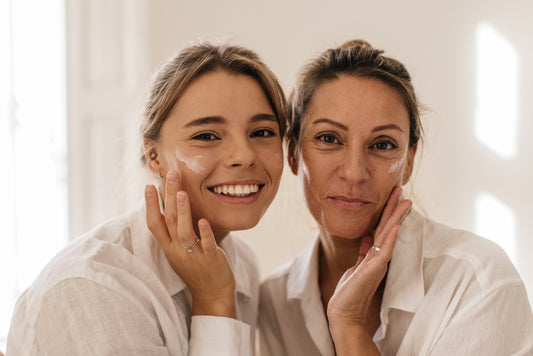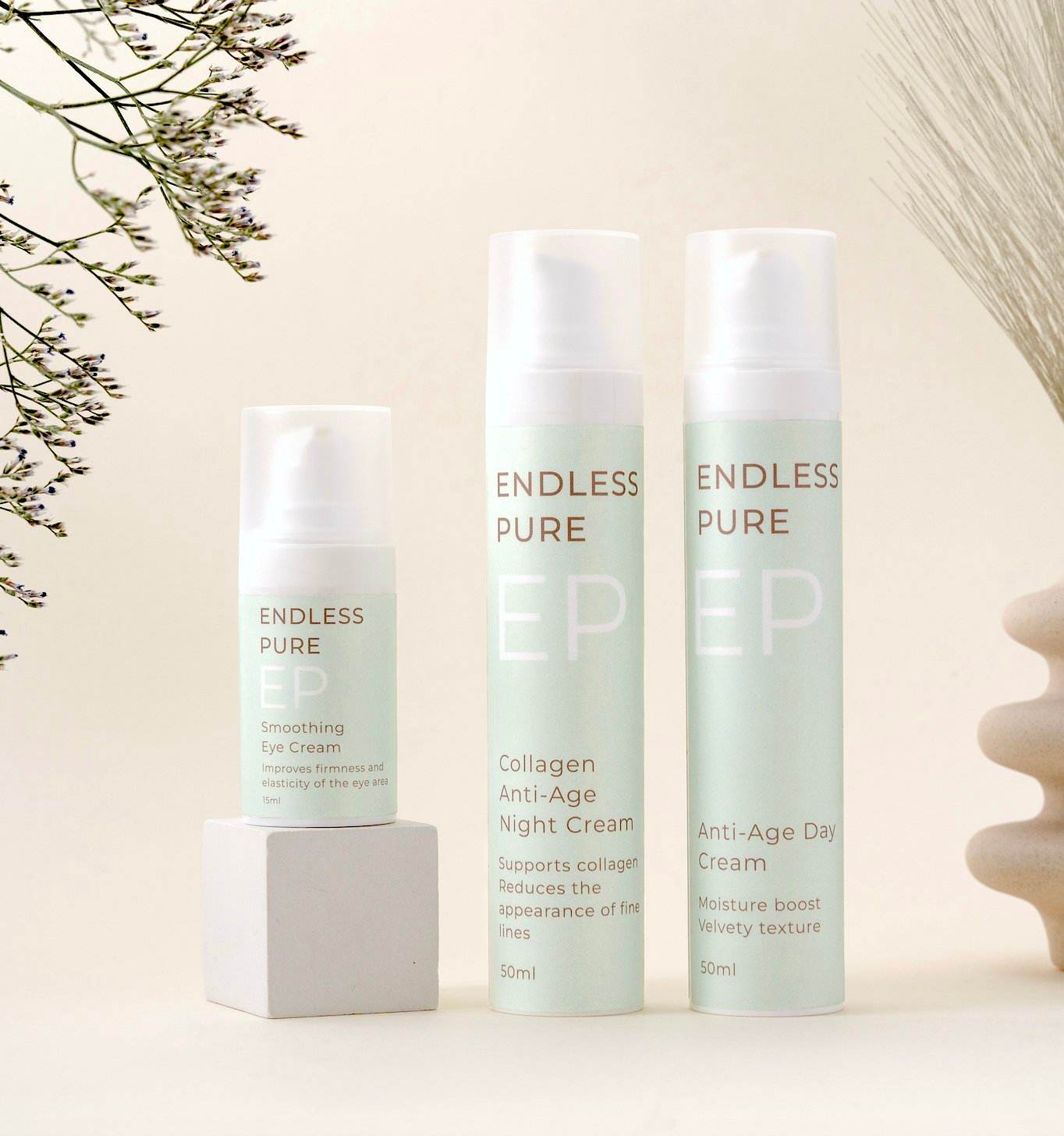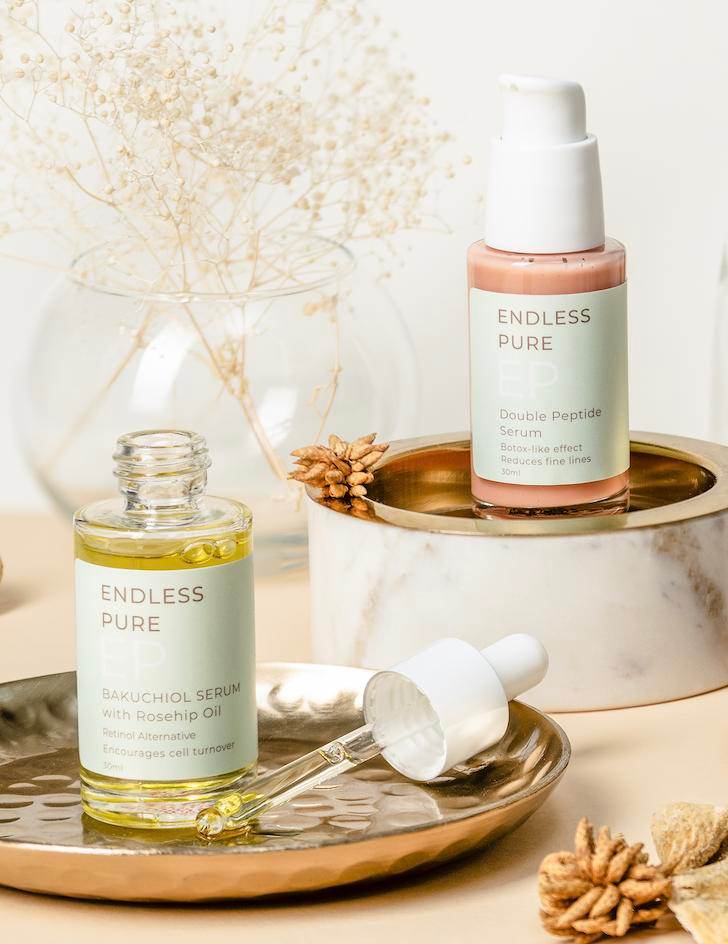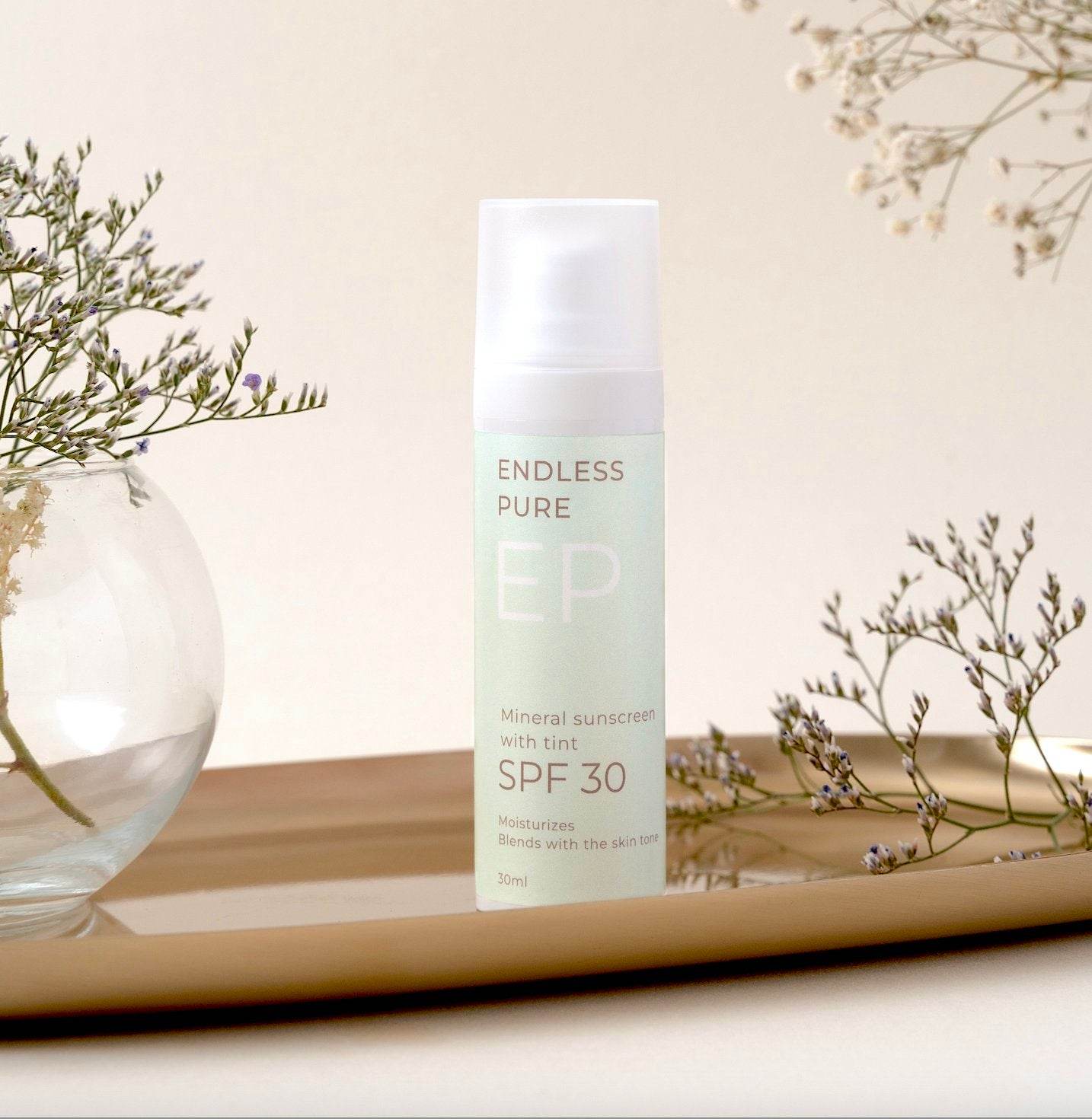The Benefits of Jojoba Oil for the Face: Uses and Tips

Table of Contents
Jojoba oil is a key ingredient in natural cosmetics, renowned for its numerous skin benefits. Thanks to its unique composition, which closely resembles human sebum, it is ideal for facial care. In this article, we will explore in detail the origin of jojoba oil, its use in cosmetics, its benefits for the skin, and tips for choosing the right product for your skin type.
What is Jojoba and How is Jojoba Oil Produced?
Jojoba (Simmondsia chinensis) is a shrub native to the desert regions of North America, particularly Arizona, California, and Mexico. This hardy tree produces seeds rich in a liquid wax, commonly known as jojoba oil.
Jojoba oil is obtained by cold pressing the seeds, a process that preserves its natural properties. Unlike other vegetable oils, jojoba oil is actually a liquid wax, which gives it exceptional stability and resistance to oxidation.
Jojoba Oil as a Cosmetic Ingredient
In cosmetics, jojoba oil is often used not as a unique, active ingredient but as a booster or stabilizer that enhances the effectiveness of other ingredients in complex formulations. Its composition, closely resembling human sebum, allows it to regulate sebum production and maintain skin balance. This makes it an ideal component in skincare products, helping to amplify the effectiveness of other ingredients like bakuchiol or rosehip oil, which are often used for anti-aging or skin renewal.
Rather than being the focal active ingredient in a formulation, jojoba oil works to improve the overall stability and performance of a product, making it a valuable addition to most cosmetic products for its versatility.
What Are the Benefits of Jojoba Oil for the Face?
Jojoba oil is prized for its multiple benefits for facial skin. Here are its main advantages:
Hydration and Nourishment
Thanks to its richness in fatty acids and wax esters, jojoba oil deeply hydrates the skin without leaving a greasy effect. It forms a protective barrier that limits dehydration and improves skin elasticity.
Sebum Regulation
For oily or acne-prone skin, jojoba oil helps regulate excess sebum, reducing the appearance of pimples and blackheads.
Soothing and Anti-Inflammatory Effect
Jojoba oil has natural anti-inflammatory properties that soothe irritation and redness, making it ideal for sensitive or redness-prone skin.
Protection Against Skin Aging
Rich in antioxidants, particularly vitamin E, jojoba oil protects the skin from oxidative stress and premature aging signs.
Non-Comedogenic and Suitable for All Skin Types
Unlike some vegetable oils, jojoba oil does not clog pores and is even suitable for acne-prone skin.
How to Know if Jojoba Oil is Suitable for Your Face?
Jojoba oil is generally well tolerated for all skin types and can be safely used by those with oily, dry, combination, or sensitive skin. However, as with any product, it is always advisable to perform a patch test before incorporating it into your daily skincare routine. This will ensure that your skin responds well to the oil.
Skin Tolerance Test:
Apply a drop of jojoba oil to the inside of your wrist or behind your ear. Wait 24 hours and observe any reaction (redness, itching, irritation). If no adverse reaction occurs, you can safely use it on your face.
Since jojoba oil is so versatile and well-suited to all skin types, it is an excellent addition to any skincare regimen. It hydrates, balances oil production, and can even help soothe conditions like eczema or rosacea.
How to Choose a Product with Jojoba Oil?
Although jojoba oil is an excellent ingredient, it is most effective when used as part of a well-balanced, complex skincare formulation. To get the best results, look for products that combine jojoba oil with other active ingredients tailored to your skin's specific needs.
For Creams:
Look for formulations that incorporate ingredients such as Alteromonas or lingonberry. These help enhance skin hydration and support the skin's barrier function, making them ideal for dry or sensitive skin.
For Serums:
Consider serums that include complementary active ingredients like bakuchiol, Hexapeptide-11, or Rosa Damascena. These ingredients provide additional anti-aging, collagen-boosting, and skin-soothing benefits when paired with jojoba oil.
The Power of a Rich Formula:
To maximize the effectiveness of jojoba oil, use it in combination with other powerful actives in a more complex formulation. When jojoba oil is used alongside ingredients like peptides, hyaluronic acid, or niacinamide, you'll see greater results, especially when targeting issues such as wrinkles, hyperpigmentation, or dryness.
If you are using a pure jojoba oil product, remember that it may offer moisturizing and soothing benefits, but for more targeted results, look for a well-rounded formulation that includes jojoba oil as part of a comprehensive skincare solution.
Conclusion
Jojoba oil is a natural ingredient with multiple benefits for facial care. Hydrating, balancing, and protective, it adapts to all skin types and easily integrates into a skincare routine. However, while jojoba oil provides essential hydration and skin care benefits, it works best as part of a more complex skincare regimen. By combining jojoba oil with other active ingredients and choosing products formulated with your skin's unique needs in mind, you can enjoy its full range of benefits for a healthy, glowing complexion.






